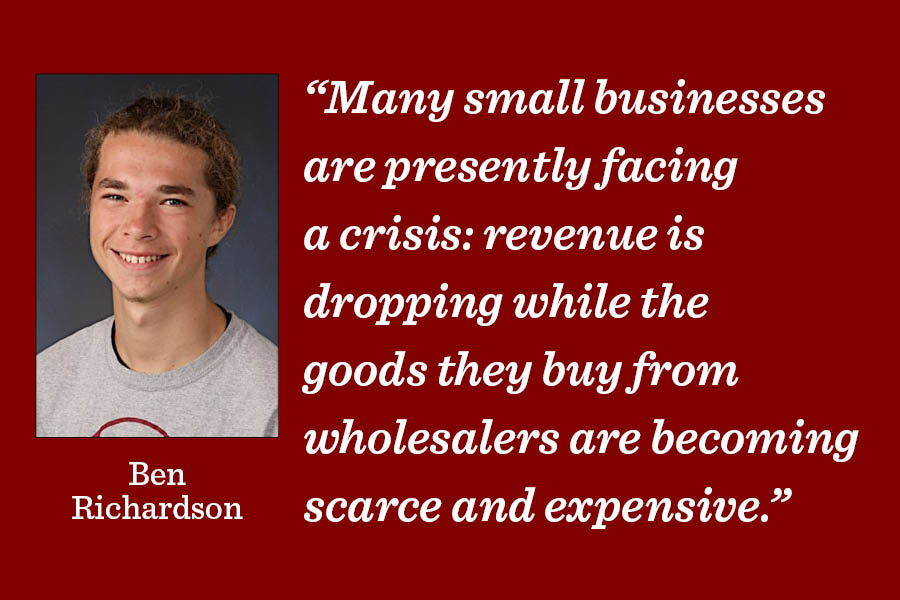Shop small, shop local
Especially through the pandemic, it’s important to support small local businesses.
May 5, 2020
Every day, scores of shoppers wait outside of Trader Joes and Whole Foods, shopping list in hand and expecting to find the produce they need. Four blocks to the south, the Harper Foods cashier leans against the register, waiting for a customer to wander in. Before the pandemic, customers came in regularly for some of the same items offered at those bigger grocery stores, but the COVID-19 pandemic has driven people away from these smaller community stores.
During this pandemic, we should reduce our purchases at big, chain stores as it hurts our community’s economy and presents a real possibility of driving them out of business.
While it’s true that stores like Target and Whole Foods offer large selections of items, that’s a fact understood by everyone. The convenience of having such a wide variety of products in one store becomes pointless when the store is consistently sold out, forcing you to make more expeditions to pick up the supplies you could have found at a local shop. Similarly, as tens of millions of Americans sheltered at home, Amazon and other online shopping enterprises have often been sold out of goods, and they present a new issue: delivery. For average shoppers it’s impossible to know how many hands one’s package passed through before it arrived at your door, significantly increasing the chance of infection from the coronavirus. In a city with thousands of independent businesses, there’s a high chance that a local store carries it, turning your hour-long shopping trip into a shorter, safer jaunt to the store.
Many small businesses are presently facing a crisis: revenue is dropping while the goods they buy from wholesalers are becoming scarce and expensive. Business owners are having to choose between closing their business for at least the duration of the pandemic or investing much of their remaining savings into their business. Both options leave small business owners in a vulnerable position for long-term financial stability. This could close many Chicago small retail stores restaurants during the pandemic and have long-lasting residual effects after the stay-at-home order is over.
Keeping money within the community begins with employee salary. According to Business Insider, an employee earns an average salary of $19,700, while Forbes estimates that any small business worker earns at least $35,000 a year. The Cornerstone Capital Group predicts that retail automation places at least 7.5 million jobs in jeopardy, but small businesses will almost always have human workers. In addition to this, Fortune magazine estimates that 63% of all American jobs come from small businesses, and only 50% of small businesses last five years after they open as bigger stores tend to dominate their market. Shopping at name-brand stores both runs small businesses into the ground and circulates less money through lower income workers. This means less money returning to the community, and less opportunity for the small businesses to offer higher-earning jobs to the community.
Supporting local businesses benefits the community as a whole and will keep the stores we know and love around for years to come. The next time you think to yourself, “I’ll just go to Target,” keep in mind the stores you haven’t shopped at in a while because there’s a scary possibility they might not be around for much longer.












